How to Foster Positive Family Support in Addiction Recovery
July 24, 2023 •Tara Treatment Center l Franklin, Indiana

It’s often said that addiction is a family disease. This is because addiction and recovery impact everyone close to the individual struggling with addiction, especially their family members.
We’ve frequently discussed how addiction can create problems within the family unit. For example, we explained in a recent blog how enabling behaviors exhibited by family members can hurt their loved one's journey to recovery. However, families can play a positive role in someone's recovery, too.
By going through support programs themselves, family members can learn how to mend their relationship with the individual impacted by addiction. Educating themselves on the process, learning to set healthy boundaries and providing support are all things Kellie Nichelson, our Men’s Program Counselor, recommends to her clients’ families.
Family’s Role in Addiction and Recovery
Oftentimes, families may feel disconnected from their loved ones when they are in active addiction. They might get pushed out of their life, so feeling any sort of involvement again is healing alone. Knowing what’s happening during treatment and recovery tends to make family members feel more involved and hopeful about the process.
Kellie stresses the importance of learning about addiction and the recovery process. She explains, “Unless they know exactly what is going on, it's hard for them to continue to encourage that process because they won't know what to expect. They won't know what is and isn’t normal, and they won't know the extent of how long it takes for recovery to happen, how many times it takes, the good times and the bad times to expect within recovery, etc. They won't know that unless they educate themselves.”
If uneducated in addiction and recovery, families can react in anger or frustration toward their loved one due to the lack of understanding. Kellie says, “They have a disease that has altered the way their brain processes and interacts with the world around them.” Instead of showing frustration, she encourages families to try to put themselves in the perspective of their loved ones.
Kellie recalls that her dad always recommended being as judgment-free as possible. Come from a position of trying to understand as best you can and meeting your loved one where they are in the recovery process. By doing this, the likelihood of encouraging the recovery process will be much higher.
As far as providing support during treatment, Kellie is a firm believer in letting professionals do their job. She comments, “I think sometimes it's easy to feel like you want to be super involved with your loved one’s recovery, and having that support is so important. But calling every single day and checking in and seeing how they're doing might not be the most important thing for them. This is your loved one's opportunity to get the help they need, and being away from the family unit for a little bit sometimes is really helpful.” She recommends families take a step back as much as they can and take advantage of the fact their family member is safe. It’s common to feel concerned for family members who are dependent on a substance, but in treatment, they can feel relaxed knowing their loved one is safe and getting the help they need.
Setting Boundaries
Both parties need to set boundaries with each other: the family and the person in recovery. Kellie believes the conversation needs to be open and ongoing. Changes happen over time, and everyone needs to be adaptable. Kellie shares some tips on how to have a productive conversation about boundaries.
For the person in recovery, Kellie mentions, “Even though the person who is struggling with addiction is the one who is needing the help, that doesn't take away their right to define their own boundaries with the people who have been helpful to them. At the end of the day, boundaries are a really good thing.”
For families, Kellie recommends starting with “I” statements. For example, “I feel this way about XYZ,” so you’re clear you’re talking about yourself and not putting the blame on the person in recovery. Many different kinds of boundaries may need to be addressed, such as emotional, financial, or physical limitations.
The conversation around setting boundaries needs to be crystal clear to both parties. Kellie explains, “It’s saying, ‘Hey, when you do this, it makes me feel this way, and this is what I would like you to do instead.’ It's holding that person to that boundary, and if that person cannot respect that boundary, then it's having a conversation of, ‘Okay, are we going to make a compromise, or am I going to have to make a more radical decision because you cannot respect my boundaries?’ The reality is, unfortunately, some people are not willing to respect boundaries, and that's where you have to start wondering, ‘Is this person going to be helpful or harmful to my recovery?’ That's sometimes a really hard decision and conversation to have as well.”
Although it’s important to set clear boundaries, you don’t have to explain them to others if you’re not comfortable doing so. Boundaries are there for yourself, not anyone else. You are the only person who needs to understand your boundaries, and everyone around you should respect them. The consequences of boundary violations also need to be understood by everyone involved.
A Hopeful Future For All
Families play an extremely important positive role in a loved one’s recovery process. Kellie often says, “Addiction is a social disease. You learned it through social behavior, and it makes sense that there would be a social element to treatment.” Families provide support by being present in that person’s life after addiction and providing emotional, physical, and possibly financial support. To be clear, we aren’t talking about enabling behaviors. Instead, it’s providing the individual with addiction an opportunity to start over. It doesn’t happen overnight, but being an active participant in their recovery story can be impactful.
Open communication is key to repairing a damaged family unit. Everyone needs to be willing to make changes and do things differently. Kellie reinforces, “Know there are going to be mistakes made. There are going to be days where everything seems to be going perfectly, your communication is great, and no one is fighting, and then there will be days where it feels like you are moving 15 steps backward. But that's not bad. That just means you are naturally healing. Things come up, and life continues. There's no perfect way to repair the family unit or to be in recovery.”
For those in recovery and their families, there are support groups such as AA, Al-Anon, and Narcotics Anonymous that Tara recommends to clients. There are also sober living facilities and outpatient programming to continue treatment and recovery.
Families are encouraged to attend family support groups such as Nar-Anon to connect with other individuals who have similar experiences to them. Kellie wants families to remember, “You can be a support and be part of their journey, but their successes and failures are not directly related to you trying hard or not trying hard. Their successes and failures are on them and their programs. Working a solid recovery program for yourself as a person who has a loved one struggling with addiction is where you're able to focus on making sure you are in the best place possible."
If they take these steps of educating themselves on the treatment and recovery process, setting healthy boundaries, and participating in support groups, family members can be a powerful source of positive support for their loved ones in recovery.
GET HELP